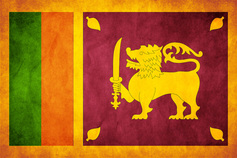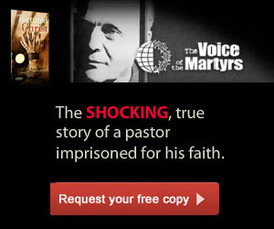
One week before the Commonwealth Heads of Government Meeting (CHOGM) in Colombo, Sri Lanka, CSW is urging Commonwealth leaders to use this opportunity to raise pressing human rights concerns with Sri Lanka, including the deteriorating situation for religious minorities.
The past 18 months have seen a huge rise in violence against Muslim and Christian targets, much of it linked with the Bodu Bala Sena (BBS), or Buddhist Force, an extremist group established in July 2012. In a recent high-profile incident on 11 August, a mosque in the Grandpass area of Colombo was attacked by a Buddhist mob. Attacks against Protestant Christians have increased significantly, with 64 recorded acts of violence from January to September 2013, including arson attacks, church demolitions, mob attacks, and physical assaults. This trend has been accompanied by tightening administrative regulation, especially in the south, including demands from local officials for long-established churches to prove their legality in order to be allowed to continue operating.
The past 18 months have seen a huge rise in violence against Muslim and Christian targets, much of it linked with the Bodu Bala Sena (BBS), or Buddhist Force, an extremist group established in July 2012. In a recent high-profile incident on 11 August, a mosque in the Grandpass area of Colombo was attacked by a Buddhist mob. Attacks against Protestant Christians have increased significantly, with 64 recorded acts of violence from January to September 2013, including arson attacks, church demolitions, mob attacks, and physical assaults. This trend has been accompanied by tightening administrative regulation, especially in the south, including demands from local officials for long-established churches to prove their legality in order to be allowed to continue operating.
In September, following a week-long visit to Sri Lanka, United Nations (UN) High Commissioner for Human Rights Navi Pillay told the UN Human Rights Council that she was “particularly alarmed at the recent surge in incitement of hatred and violence against religious minorities, including attacks on churches and mosques, and the lack of swift action against the perpetrators”. She noted that the government “seemed to downplay this issue or even put the blame on minority communities themselves” and that she “heard disturbing accounts of state patronage or protection given to extremist groups”. She urged the government “to send the strongest possible signal of zero tolerance for such acts by ensuring that those responsible, who are in many cases easily identifiable, are punished.”
The government has also announced plans to introduce legislation against publications which “defame the original teachings and traditions of the major religions”. It will reportedly begin by establishing a Buddhist Publications Regulatory Board, with a mandate to regulate any publications allegedly in violation of Buddhism. There are serious concerns about these proposals, which appear conceptually similar to anti-blasphemy laws by protecting state-sanctioned versions of religious doctrine. Colombo-based think-tank, the Centre for Policy Alternatives, noted in a statement that if enacted, the proposals would “stamp a further official seal of approval on Sri Lanka’s slide towards majoritarian religious extremism and sectarian violence”.
CSW’s Chief Executive Mervyn Thomas said, “We urge Commonwealth leaders at CHOGM to use this opportunity to raise serious concerns with Sri Lanka’s government, including the deteriorating religious freedom situation. If Sri Lanka is to make meaningful progress on reconciliation and developing a culture of pluralism, it must do much more to address the violence and discrimination suffered by its religious minorities, especially Christians and Muslims. With President Rajapaksa due to become the first new Commonwealth Chairperson-in-Office since the adoption of the 2013 Commonwealth Charter, the credibility of this Charter is linked with how far it is respected by Sri Lanka. Commonwealth leaders must urge the President to adhere to the principles of the Charter, including human rights (article 2), the need to protect religious freedom (article 4), and the rule of law (article 7). They should also strongly encourage the government of Sri Lanka to implement the recommendations made by the UN High Commissioner for Human Rights in her recent report”.
The government has also announced plans to introduce legislation against publications which “defame the original teachings and traditions of the major religions”. It will reportedly begin by establishing a Buddhist Publications Regulatory Board, with a mandate to regulate any publications allegedly in violation of Buddhism. There are serious concerns about these proposals, which appear conceptually similar to anti-blasphemy laws by protecting state-sanctioned versions of religious doctrine. Colombo-based think-tank, the Centre for Policy Alternatives, noted in a statement that if enacted, the proposals would “stamp a further official seal of approval on Sri Lanka’s slide towards majoritarian religious extremism and sectarian violence”.
CSW’s Chief Executive Mervyn Thomas said, “We urge Commonwealth leaders at CHOGM to use this opportunity to raise serious concerns with Sri Lanka’s government, including the deteriorating religious freedom situation. If Sri Lanka is to make meaningful progress on reconciliation and developing a culture of pluralism, it must do much more to address the violence and discrimination suffered by its religious minorities, especially Christians and Muslims. With President Rajapaksa due to become the first new Commonwealth Chairperson-in-Office since the adoption of the 2013 Commonwealth Charter, the credibility of this Charter is linked with how far it is respected by Sri Lanka. Commonwealth leaders must urge the President to adhere to the principles of the Charter, including human rights (article 2), the need to protect religious freedom (article 4), and the rule of law (article 7). They should also strongly encourage the government of Sri Lanka to implement the recommendations made by the UN High Commissioner for Human Rights in her recent report”.


 RSS Feed
RSS Feed